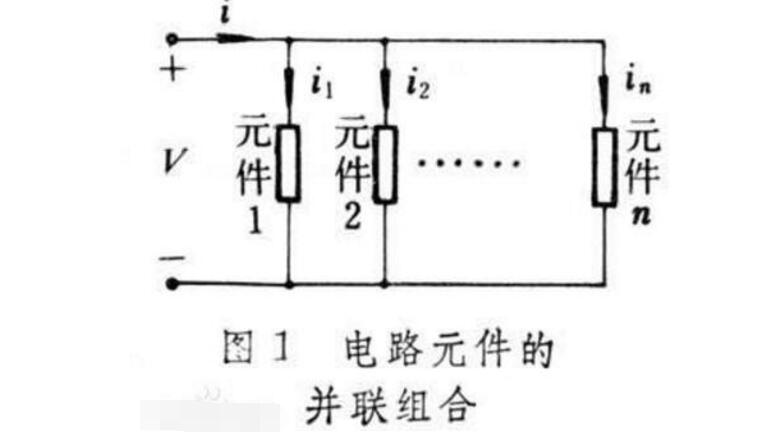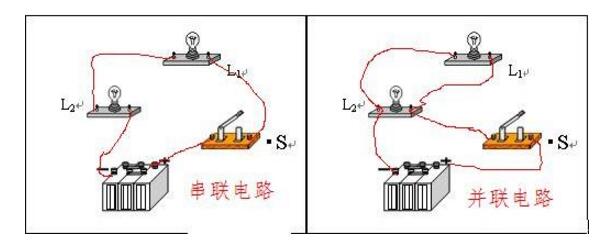Definition: The electrical appliances are connected to the circuit in turn. Parallel circuit is one of the two basic ways to make the current between the circuit elements in parallel.
Features of parallel circuitParallel connection is to connect the two terminals of each element of two or more two-terminal circuit elements to a pair of common nodes, respectively, as shown in Figure 1, which shows the parallel connection of n two-terminal elements. They are all connected to a pair of common nodes, which are connected to other parts of the circuit.

The main characteristics of the parallel circuit are:
1. The terminal voltage of all parallel components is the same voltage, that is, V in the circuit shown in the figure.
2. The total current of the parallel circuit is the sum of the currents of all components. In the circuit shown in the figure, i is the total current, i1, i2, and i3 are the currents of elements 1, 2, and 3 respectively, i=i1+i2+i3.
Series circuitSeveral circuit elements are connected to each other along a single path, and each node is connected to only two elements at most. This type of connection is called series connection. A circuit connected in series is called a series circuit.
The current flowing through each resistor in the series circuit is equal. Because each section of the same branch in the DC circuit has the same current intensity.

The switch controls the entire circuit in any position, that is, its function has nothing to do with the position. There is only one path for current, and the current passing through one lamp must pass through the other lamp. If one lamp is extinguished, the other lamp must be extinguished.
Advantages: In one circuit, if you want to control all circuits, you can use a series circuit;
Disadvantages: As long as there is a disconnection, the entire circuit becomes a disconnection, that is, the electronic components connected in series cannot work normally;
Distinction: There is no branch (branch) in the series circuit.
Similarities in series and parallel circuits1. Regardless of whether it is a series circuit or a parallel circuit, the total electrical energy consumed by the circuit is equal to the sum of the electrical energy consumed by various electrical appliances. W=W1+W2.
2. Regardless of whether it is a series circuit or a parallel circuit, the total electrical power of the circuit is equal to the sum of the electrical power consumed by each electrical appliance. P=P1+P2.
3. The sum of the total electric heat generated by either the series circuit or the parallel circuit circuit and the electric heat generated by various electrical appliances. Q=Q1+Q2.
Elcb Breaker,Elcb Circuit Breaker,Earth Leakage Breaker,Earth Leakage Protection
ZHEJIANG QIANNA ELECTRIC CO.,LTD , https://www.traner-elec.com